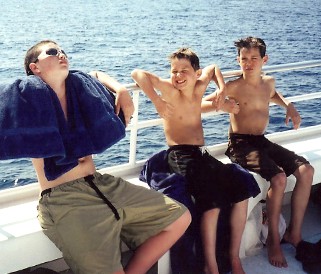About Parental Alienation
An overview of a destructive condition
In the foreword to A Kidnapped Mind, Dr. Reena Sommer, an expert in divorce and custody issues, talks about alienators as a new and emerging class of dysfunctional parents that “do not fit the stereotype of the deficient and ill-equipment parent.
“Instead, these parents are generally articulate, resourceful, and competent in all other aspects of their lives — except in the realm of parenting.
“In fact, these individuals might easily be mistaken for ideal parents, except to the properly informed, because they profess love and concern for their children. What sets these individuals apart from other dysfunctional parents is their overwhelming commitment to meeting their own needs first. In doing so, they destroy the relationship their children have with the other parent – at whatever cost.”
 If the child can withstand the alienating parent’s lies and manipulations, then bad parenting is certainly taking place, but Parental Alienation is not. It becomes Parental Alienation when the child capitulates and begins to participate in the campaign against the targeted parent. This is where the real damage occurs to a child’s developing personality and young mind and heart.
If the child can withstand the alienating parent’s lies and manipulations, then bad parenting is certainly taking place, but Parental Alienation is not. It becomes Parental Alienation when the child capitulates and begins to participate in the campaign against the targeted parent. This is where the real damage occurs to a child’s developing personality and young mind and heart.
Dr. Richard A. Gardner did pioneering work identifying Parental Alienation in the mid-eighties. He characterized the disorder as a cluster of symptoms:
- A campaign of denigration waged against the target parent.
- Weak, absurd or frivolous rationalizations given for the deprecation.
- The child’s lack of natural ambivalence for both parents.
- The child displays “independent thinker” phenomenon.
- The child reflexively supports the alienating parent throughout the parental conflict.
- The child displays no guilt about cruelty to and exploitation of the target parent.
- The child employs scenarios borrowed from the alienating parent.
- The animosity includes the friends and family of the target parent.
This page can only, by its very nature, be brief and non-technical. If you know a child whom you believe is being alienated against one of his or her parents I urge you in the strongest terms to get expert advice from the child mental health community.

